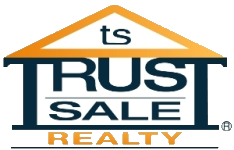|
Why Use a REALTOR®? All real estate licensees are not the same. Only real estate licensees who are members of the NATIONAL ASSOCIATION OF REALTORS® are properly called REALTORS®. They proudly display the REALTOR "®" logo on the business card or other marketing and sales literature. REALTORS® are committed to treat all parties to a transaction honestly. REALTORS® subscribe to a strict code of ethics and are expected to maintain a higher level of knowledge of the process of buying and selling real estate. An independent survey reports that 84% of home buyers would use the same REALTOR® again. |

|
Real estate transactions involve one of the biggest financial investments most people experience in their lifetime. Transactions today usually exceed $100,000. If you had a $100,000 income tax problem, would you attempt to deal with it without the help of a CPA? If you had a $100,000 legal question, would you deal with it without the help of an attorney? Considering the small upside cost and the large downside risk, it would be foolish to consider a deal in real estate without the professional assistance of a REALTOR®.
But if you're still not convinced of the value of a REALTOR®, here are a dozen more reasons to use one:
1. Your REALTOR® can help you determine your buying power -- that is, your financial reserves plus your borrowing capacity. If you give a REALTOR® some basic information about your available savings, income and current debt, he or she can refer you to lenders best qualified to help you. Most lenders -- banks and mortgage companies -- offer limited choices.
2. Your REALTOR® has many resources to assist you in your home search. Sometimes the property you are seeking is available but not actively advertised in the market, and it will take some investigation by your agent to find all available properties.
3. Your REALTOR® can assist you in the selection process by providing objective information about each property. Agents who are REALTORS® have access to a variety of informational resources. REALTORS® can provide local community information on utilities, zoning. schools, etc. There are two things you'll want to know. First, will the property provide the environment I want for a home or investment? Second, will the property have resale value when I am ready to sell?
4. Your REALTOR® can help you negotiate. There are myriad negotiating factors, including but not limited to price, financing, terms, date of possession and often the inclusion or exclusion of repairs and furnishings or equipment. The purchase agreement should provide a period of time for you to complete appropriate inspections and investigations of the property before you are bound to complete the purchase. Your agent can advise you as to which investigations and inspections are recommended or required.
5. Your REALTOR® provides due diligence during the evaluation of the property. Depending on the area and property, this could include inspections for termites, dry rot, asbestos, faulty structure, roof condition, septic tank and well tests, just to name a few. Your REALTOR® can assist you in finding qualified responsible professionals to do most of these investigations and provide you with written reports. You will also want to see a preliminary report on the title of the property. Title indicates ownership of property and can be mired in confusing status of past owners or rights of access. The title to most properties will have some limitations; for example, easements (access rights) for utilities. Your REALTOR®, title company or attorney can help you resolve issues that might cause problems at a later date.
6. Your REALTOR® can help you in understanding different financing options and in identifying qualified lenders.
7. Your REALTOR® can guide you through the closing process and make sure everything flows together smoothly.
8. When selling your home, your REALTOR® can give you up-to-date information on what is happening in the marketplace and the price, financing, terms and condition of competing properties. These are key factors in getting your property sold at the best price, quickly and with minimum hassle.
9. Your REALTOR® markets your property to other real estate agents and the public. Often, your REALTOR® can recommend repairs or cosmetic work that will significantly enhance the salability of your property. Your REALTOR® markets your property to other real estate agents and the public. In many markets across the country, over 50% of real estate sales are cooperative sales; that is, a real estate agent other than yours brings in the buyer. Your REALTOR® acts as the marketing coordinator, disbursing information about your property to other real estate agents through a Multiple Listing Service or other cooperative marketing networks, open houses for agents, etc. The REALTOR® Code of Ethics requires REALTORS® to utilize these cooperative relationships when they benefit their clients.
10. Your REALTOR® will know when, where and how to advertise your property. There is a misconception that advertising sells real estate. The NATIONAL ASSOCIATION OF REALTORS® studies show that 82% of real estate sales are the result of agent contacts through previous clients, referrals, friends, family and personal contacts. When a property is marketed with the help of your REALTOR®, you do not have to allow strangers into your home. Your REALTOR® will generally prescreen and accompany qualified prospects through your property.
11. Your REALTOR® can help you objectively evaluate every buyer's proposal without compromising your marketing position. This initial agreement is only the beginning of a process of appraisals, inspections and financing -- a lot of possible pitfalls. Your REALTOR® can help you write a legally binding, win-win agreement that will be more likely to make it through the process.
12. Your REALTOR® can help close the sale of your home. Between the initial sales agreement and closing (or settlement), questions may arise. For example, unexpected repairs are required to obtain financing or a cloud in the title is discovered. The required paperwork alone is overwhelming for most sellers. Your REALTOR® is the best person to objectively help you resolve these issues and move the transaction to closing (or settlement).
What a REALTOR Will Do For You:
Many consumers aren't aware of the hundreds of tasks full-service REALTORS® perform for home sellers and buyers, or the value they bring to the real-estate transaction. Here are just a few:
For Sellers:
Walking you through the process of selling your home from beginning to end.
Providing comparable information about the prices for which other properties have sold and analyzing data for you to gain a true comparison.
Supplying information regarding local customs and regulations you may want to consider.
Sharing information about your home through the Capital Region Multiple Listing Service and on the Internet.
Placing advertisements for your home.
Fielding phone calls.
"Qualifying" potential buyers to make sure they would be financially able to buy your property.
Negotiating the sales contract.
Alerting you to potential risks.
Complying with the disclosures required by law.
Providing you with an estimate of the closing costs you will incur.
Helping you prepare for a smooth closing of the transaction.
For Buyers:
Helping you determine how much home you can afford. Often a REALTOR® can suggest ways to accrue the down payment and explain alternative financing methods.
In addition to knowing the local money market, can also tell you what personal and financial data to bring with you when you apply for a loan.
Is already familiar with current real estate values, taxes, utility costs, municipal services and facilities, and may be aware of local zoning changes that could affect your decision to buy.
Will research your housing needs in advance through the MLS --even if you are relocating from another city.
Showing you only those homes best suited to your needs--size, style, features, location, accessibility to schools, transportation, shopping and other personal preferences.
Suggest simple, imaginative changes that make a home more suitable for you and improve its utility and value. Negotiating the sales contract.
A REALTOR® is sensitive to the importance you place on this major commitment you are about to make. Look for a real estate professional to facilitate negotiation of a win-win agreement that will satisfy both you and the seller.
LIST OF 114 TASKS THAT REQUIRED IN TYPICAL REAL ESTATE TRANSACTION
Pre-Listing Activitiess
1. Make appointment with seller for listing presentation
2. Send seller a written or e-mail confirmation of listing appointment an call to confirm
3. Research comparable currently listed properties
4. Research sales activity in the neighborhood
5. Research "average days on market" for property of this type, price range and location
6. Review property tax roll information
7. Prepare "comparable market analysis" (CMA) to help establish fair market value
8. Prepare listing presentation package
9. Perform exterior curb appeal assessment of property
10. Compile and assemble file on property
11. Review listing appointment checklist to ensure all steps and actions have been completed
Listing Appointment Presentation
1. Give seller an overview of current market conditions and projections
2. Review agent's and company's credentials and accomplishments in the market
3. Present company's profile and position or "niche" in the marketplace
4. Present CMA results to seller, including comparables, sold, current listings and expired
5. Offer pricing strategy based on professional judgment and interpretation of current market conditions
6. Discuss goals with seller to market effectively
7. Explain market power and benefits of Multiple Listing Service
8. Explain market power of Web marketing, IDX and REALTOR.com
9. Explain the work the brokerage and agent do behind the scenes and the agent's availability on weekends
10. Explain the agent's role in taking calls to screen for qualified buyers and protect seller from curiosity seekers
11. Present and discuss strategic marketing plan
12. Explain different agency relationships and determine seller's preference
13. Go over residential listing agreement
Once Property is Under Listing Agreement
1. Review title information, if appropriate
2. Discuss possible buyer financing alternatives and options with seller
3. Identify homeowner association manager, if applicable
4. Verify homeowner association fees
5. Verify security system, current term of service and whether owned or leased
6. Ascertain need for lead-based paint disclosure and other disclosures
7. Prepare detailed list of property amenities and assess market impact
8. Explain benefits of homeowner warranty to seller
9. Have extra key made for lockbox, if needed
10. Verify if property has rental units involved. If so:
* Make copies of all leases for retention in listing file
* Inform tenants of listing and discuss how showings will be handled
11. Arrange for installation of yard sign
12. Assist seller with completion of seller's disclosure forms
13. Complete new listing checklist
14. Review results of curb appeal assessment with seller and provide suggestions to improve salability
15. Review results of interior decor assessment and suggest changes to shorten time on market
16. Load listing into transaction management software program
Entering Property in Multiple Listing Service Database
1. Prepare MLS profile sheet
2. Enter property data from profile sheet into MLS listing database
3. Proofread MLS database listing for accuracy
4. Add property to company's active listings list
5. Provide seller with MLS profile sheet data form
6. Take photos for upload into MLS and use in flyers
Marketing the Listing
1. Create print and Internet ads
2. Coordinate showings with owners, tenants and other REALTORS®
3. Return all calls, including nights and weekends
4. Install electronic lock box if authorized by owner.
5. Prepare mailing and contact list
6. Generate mail-merge letters to contact list
7. Order "just listed" labels and reports
8. Prepare flyers and feedback faxes
9. Review comparable MLS listings regularly to ensure property remains competitive in price, terms, conditions and availability
10. Prepare property marketing brochure
11. Arrange for printing or copying of supply of marketing brochures or flyers
12. Place marketing brochures in all company agent mailboxes
13. Upload listing to company and agent Internet site, if applicable
14. Mail out "just listed" notice to all neighborhood residents
15.Provide marketing data to prospective buyers
16. Provide "special feature" cards for marketing, if applicable
17. Submit ads to company's participating Internet real estate sites
18. Convey price changes promptly to MLS and all Internet groups
19. Reprint/supply brochures promptly as needed
20. Send feedback e-mails/faxes to buyers' agents after showings
21. Discuss feedback with seller to determine if changes will accelerate the sale
22. Place regular weekly update calls to seller to discuss marketing and pricing
The Offer and Contract
1. Receive and review all offer to purchase contracts submitted by buyers or buyers' agents
2. Evaluate offers and prepare a "net sheet" on each for the owner for comparison purposes
3. Counsel seller on offers. Explain merits and weakness of each offer.
4. Contact buyers' agents to review buyer's qualifications and discuss offer
5. Fax/deliver seller's disclosure to buyer's agent or buyer upon request
6. Obtain pre-qualification letter from buyer
7. Negotiate offers on seller's behalf, setting time limit for loan contingency
8. Prepare and convey any counter offers, acceptance or amendments to buyer's agent
9. Provide copies of contract and all addenda to escrow
10. When offer to purchase is accepted and signed by seller, deliver to buyer's agent
11. Record and deposit buyer's earnest money into escrow
12. Deliver copies of fully signed purchase contract to seller
13. Deliver copies of purchase contract to selling agent
14. Provide copies of signed purchase contract for office file
15. Advise seller in handling additional offers to purchase submitted between contract and closing
16. Change status in MLS to "sale pending"
17. Update transaction management program to show "sale pending"
18. Provide income and credit information to seller if property will be seller-financed
19. Assist buyer with obtaining financing, if applicable, and follow-up as necessary
20. Coordinate with lender on loan lock-in
21. Order septic system inspection, if applicable
22. Receive and review septic system report, if applicable
23. Verify mold inspection ordered, if applicable
24. Verify mold inspection ordered, if required
Tracking the loan process
1. Add lender and other vendors to transaction management program so agents, buyer and seller can track progress of sale
2. Contact lender periodically to ensure processing is on track
3. Relay final approval of buyer's loan application to seller
Home Inspection
1. Coordinate buyer's professional home inspection with seller
2. Review home inspector's report
3. Enter completion into transaction management tracking software program
4. Recommend or assist seller with identifying and negotiating with trustworthy contractors to perform any required repairs
The Appraisal
1. Schedule appraisal
2. Provide comparable sales used in market pricing to appraiser
3. Follow-up on appraisal
4. Enter completion into transaction management program
Closing Preparations and Duties
1. Coordinate closing process with buyer's agent and lender
2. Update closing forms and files
3. Ensure all parties have forms and information needed to close the sale
4. Confirm closing date and time and notify all parties
5. Work with buyer's agent in scheduling and conducting buyer's final walk through prior to closing
6. Request copy of closing documents from closing agent
7. Assist seller in providing homeowner's warranty, if applicable
8. Review closing documents carefully
9. Coordinate this closing with seller's next purchase and resolve any timing problems
10. Refer sellers to three of the best agents at their destination, if applicable
11. Change MLS status to "sold." Enter sale date, price, selling broker and agent's ID numbers, etc.
12. Close out listing in transaction management program
Follow-Up After Closing
1. Answer questions about filing claims with homeowner warranty company, if applicable
2. Attempt to clarify and resolve disputes about repairs if buyer is not satisfied
3. Respond to any follow-up calls and provide additional information required from office files, if appropriate.




